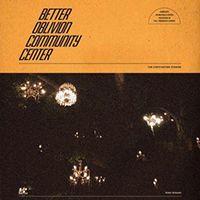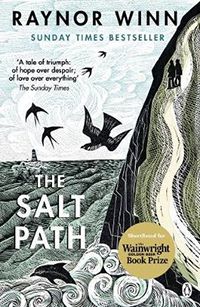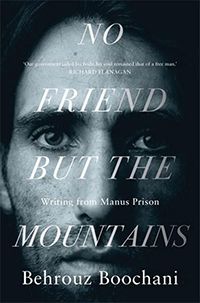Each week we bring you a sample of the books we’re reading, the films and TV shows we’re watching, and the music we’re listening to.
Marie Matteson is listening to Better Oblivion Community Centre
I seldom come across new music. I am definitely out of all the loops. This week though, while listening to one of my favourite podcasts I heard the name Better Oblivion Community Center. A name that long and concrete (in all senses) stuck, and I’m so very glad it did. It’s a community centre of two, Phoebe Bridgers and Conor Oberst. It’s also a fantastic album, that grows after repeated listens. It’s catchy, thoughtful indie-rock, political and also full of storytelling – at one point I thought Paul Kelly had wandered in. See if you can guess which track I mean.
Angela Crocombe is reading The Salt Path by Raynor Winn
This beautiful memoir by debut British author Raynor Winn captivated me from the outset. After losing their house in a protracted court case and with a doctor’s terminal diagnosis hanging over her husband’s head, Ray and her husband decide to trek 630 miles along the South West Coast Path from Somerset to Dorset.
I loved the descriptions of the beautiful coastline, finding somewhere to camp safely each night and the gnawing hunger they regularly experienced. This book made me want to put on the hiking boots and get away from it all, but also made me appreciate showers and three meals a day.
Paul Goodman is reading No Friend But the Mountains by Behrouz Boochani, translated by Omid Tofighian
After jumping on the award-winners train with Behrouz Boochani’s No Friend But the Mountains, I am left with the overwhelming feeling that this book should be passed around and made known to everyone – its importance can hardly be overstated. The discrepancy between Boochani’s writing and the state narrative makes you aware that these two accounts aren’t merely contradictory: for the state there is no account at all.
No Friend But the Mountains strives for artfulness as it horrifies with the truth. You can see this in the way Boochani chooses to blur the profiles of his fellow prisoners, out of necessity for their safety, and in how this book was written (typed out on a phone and sent out via WhatsApp). Translator Omid Tofighian also makes several stylistic allusions to the Kurdish literary tradition. It perhaps doesn’t need this finesse, but as groundbreaking achievement, it works; as vital exposé, it works; and as high art, it works. It ought to be read (or at the very least known) by everyone, for the good of all of us.





